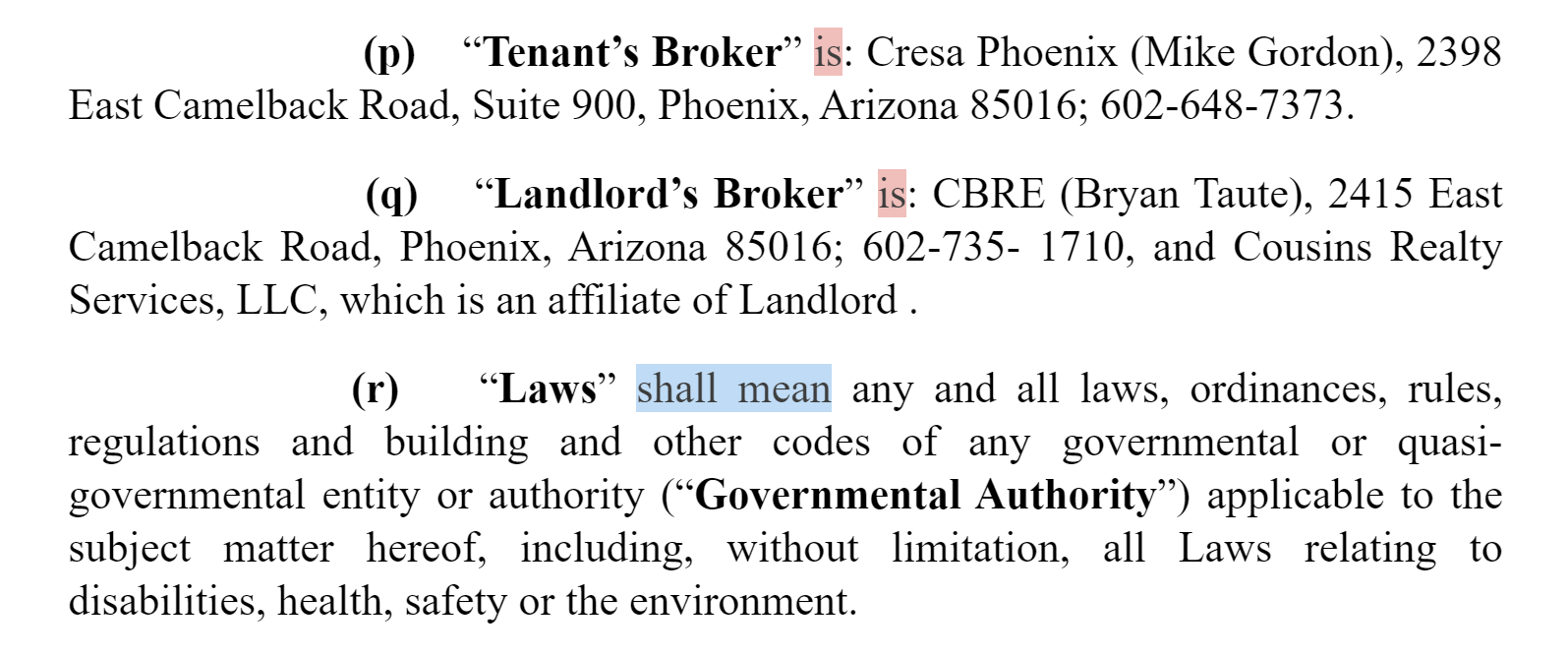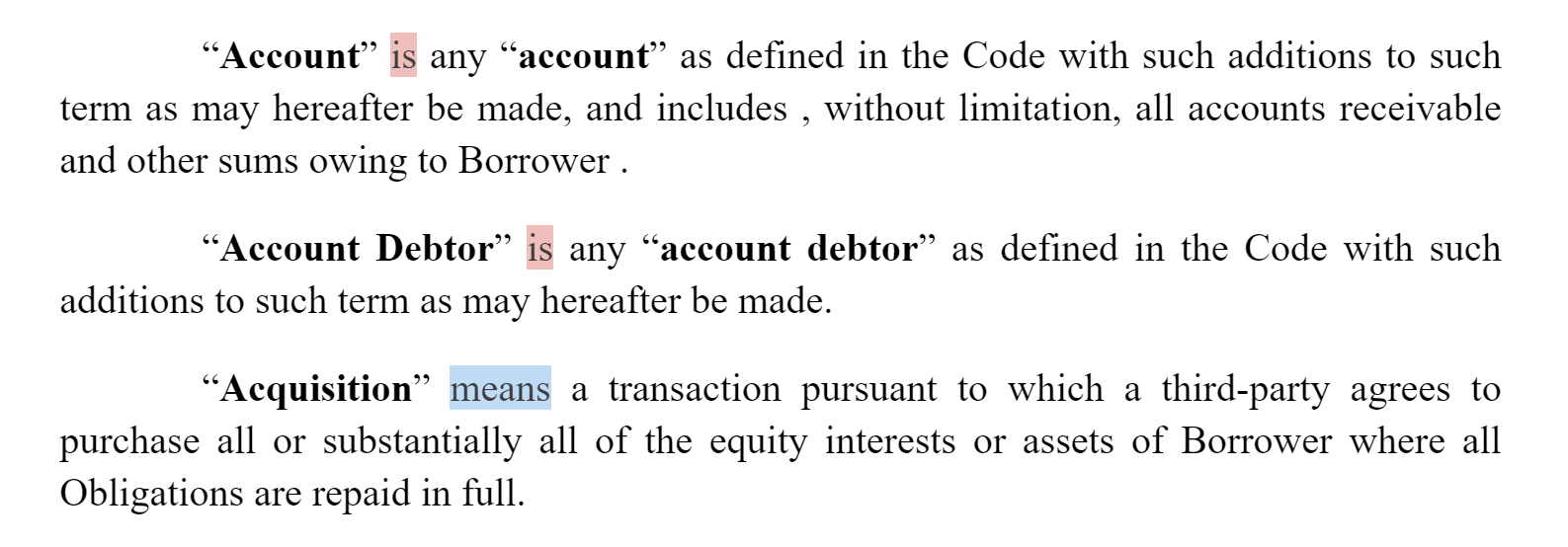One of the fringe benefits of my being LegalSifter‘s chief content officer—besides health insurance and all—is that I get exposed to a far broader range of contract language than would otherwise be the case.
So today, I discovered that some drafters use is as a definition verb. I saw it first in a sample provision included in advice built into one of LegalSifter’s algorithms (or “Sifters”)—“Broker” is X. That of course sent me straight to EDGAR, where I found this:
These two instances of is used as the definitional verb match that LegalSifter sample provision, in that they’re used in identifying an entity. The definition of Laws uses a more conventional choice, shall mean—the doofus alternative to means.
But consider this example, which uses is and means interchangeably:
And there’s this example, which uses the plural, are:
A defined term is a label used for the definition, so using means makes sense: the defined term Account isn’t actually an account, it’s used to express the stated meaning.
And nothing is gained by using is when you identify whoever is behind a defined term for a person or entity. It smacks of Daniel Craig is James Bond! Again, the defined term is a label, so means works just fine.




by the same way, i can say Laws are any all laws instead of laws shall mean, Right?
No.
Noted, thanks!
I’m pretty sure I learned from you about making defined terms singular except where it’s really not possible. The definition of Borrower’s Books brought that to mind. I have found so much of what you advise so valuable, especially the categories of contract language. But believe it or not, I’ve found this rule to be the one I go to most. It avoids so many complicated formulations in the drafting of the contract itself. On your basic point about “means” vs “is,” I agree.
Glad to have been of assistance!